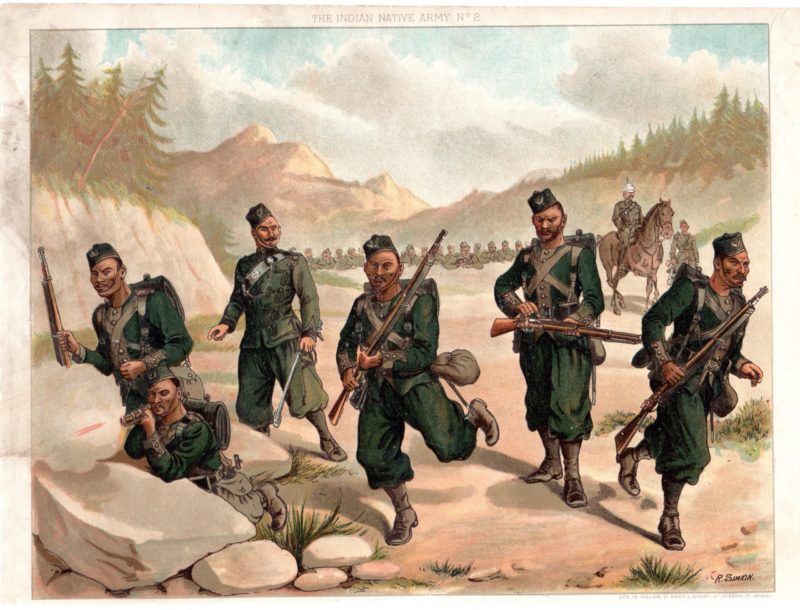Gurkha Soldiers and the Anglo-Bhutan War of 1864-65

Gurkha Soldiers and the Anglo-Bhutan War of 1864-65
Similar to Nepal in many respects, the state of Bhutan was the site of a brief but intense war which involved several Gurkha units in 1864 and 1865. In response to a history of raids south into British Indian territory and to perceived slights against British envoys involved in ongoing civil conflicts within Bhutan, the Governor-General of India ordered a declaration of war on Bhutan in November of 1864. Four columns of British, Indian and Gurkha troops, including those from units which would go on to become 3rd and 8th Gurkha Rifles, known as the Duar Field Force, marched north into the Bhutanese foothills, with initial objectives of four forts at Dewangiri, Sidli, Buxa and Daling being taken relatively easily, despite having to improve or cut paths through often dense jungle or swamp, by January 1865. At this point the majority view was that the pacification of Bhutan had been completed, and there were even orders issued for the demobilisation of the Daur Field Force, when attacks by the local Bhutanese forces began across the entire line of captured forts and British-Indian positions.
Whilst the majority of the attacks, such as those on the Gurkhas stationed at Buxa, were repulsed, the attacks against the fort of Dewangiri placed the defenders, including Gurkhas, in great difficulty. Bhutanese forces managed to both cut off the water supply and communications routes to the fort, placing its defenders at the mercy of their own dwindling ammunition supplies.
Before dawn on the morning of February 5th 1865 the defenders of Dewangiri staged a breakout but the attempted withdrawal became confused and led to the loss of the majority of the force’s baggage, guns and even some of the wounded.
Once news of these serious setbacks reached Calcutta, strong reinforcements in the shape of two Brigades, led by Brigadier-General Tombs, V.C., C.B. were sent to take back the initiative.
The renewed force managed to retake Dewangiri by April 1865, with a soldier of the 44th (Sylhet) Regiment of Bengal Native (Light) Infantry (an antecedent of 8GR), Bakhat Singh Rai, one of the first to storm the Bhutanese stockade, for which he would be awarded the Indian Order of Merit.
The war would drag on in smaller engagements for many more months despite this, until the guns lost in the retreat from Dewangiri were finally returned, ending hostilities.

